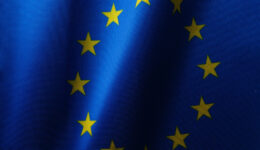EU signs UN Convention against Cybercrime
EU signs UN cybercrime convention, setting global standards, expanding cooperation beyond the Budapest Convention, and moving toward entry into force upon 40 ratifications.

EU signs UN cybercrime convention, setting global standards, expanding cooperation beyond the Budapest Convention, and moving toward entry into force upon 40 ratifications.

EU child protection scanning laws face renewed delay amid privacy, encryption, and feasibility disputes as a legal gap approaches next April.

EU greenlights signature of the UN Cybercrime Convention, setting global standards, cooperation on e-evidence, and strong human rights safeguards.

The EU Digital Omnibus targets technical simplification and coherence across GDPR, ePrivacy, AI Act, and other digital laws without weakening substantive rights or enforcement.

EU lawmakers propose a broad workplace algorithmic management directive with transparency, consultation, human oversight, and H&S obligations, potentially reshaping HR tech governance across the labor market.

EU fines Google €2.95 billion for adtech self-preferencing, orders structural conflict fixes within 60 days, and signals possible divestiture amid parallel US remedies proceedings.

Meta and Google will halt all political and social issue ads in the EU due to the strict requirements of the new TTPA regulation, citing excessive compliance burdens.

The State of the Digital Decade 2025 report finds the EU progressing in digital infrastructure but lagging in key technologies and skills, urging greater investment and coordinated action.

BEUC has filed a complaint with the European Commission against Shein for using dark patterns to drive sales, potentially violating EU consumer protection laws.

MEPs urge major investments and regulatory reforms to boost EU digital sovereignty, reduce foreign tech dependence, and enhance secure, interoperable digital infrastructure.